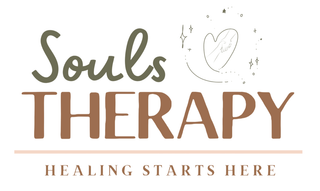Separation anxiety is a natural part of human development, but it can be distressing for both the individual experiencing it and their loved ones. Whether it’s a child struggling to say goodbye to a parent, or an adult dealing with fears of abandonment in relationships, separation anxiety is a deeply emotional experience. But when does it actually begin, and what can we do to support those going through it? Let’s explore the roots of separation anxiety, its developmental timeline, and how to manage it effectively.
What Is Separation Anxiety?
Separation anxiety refers to feelings of distress and fear that arise when a person is separated from someone they are emotionally attached to. While it is most commonly associated with young children, separation anxiety can also affect adults in various forms, often manifesting as fear of being alone, excessive worry about loved ones, or difficulty functioning without constant reassurance.
When Does Separation Anxiety Start in Children?
For most children, separation anxiety begins between the ages of 6 and 12 months. This is a pivotal stage in their development when they start to understand object permanence—the concept that people and things continue to exist even when out of sight. While this newfound awareness is a positive milestone, it also makes them more aware of their caregivers’ absence, which can trigger anxiety.
Developmental Milestones Linked to Separation Anxiety:
-
6-8 Months: Babies may cry or become distressed when separated from their primary caregivers. This is a normal reaction as they begin to form strong emotional bonds.
-
18 Months to 2 Years: Separation anxiety often peaks during toddlerhood. At this stage, children may protest loudly when parents leave but can usually be comforted and distracted.
-
Preschool Years (3-5 Years): As children grow, separation anxiety generally decreases. However, some children may still experience difficulty with transitions, such as starting school or daycare.
Separation Anxiety in Adults: A Less Talked About Reality
While separation anxiety is often discussed in the context of children, adults can experience it too. Adult separation anxiety may emerge during significant life transitions, such as the end of a relationship, moving away from family, or losing a loved one. In some cases, adults may develop separation anxiety as a continuation of unresolved issues from childhood.
Signs of Adult Separation Anxiety:
-
Excessive worry about the safety of loved ones
-
Difficulty being alone or sleeping alone
-
Frequent need for reassurance from partners or family members
-
Avoiding activities that require separation from loved ones
What Causes Separation Anxiety?
Separation anxiety is influenced by a combination of biological, environmental, and psychological factors. Understanding the root causes can help you address it more effectively.
Common Causes of Separation Anxiety:
-
Attachment Style: Children with a secure attachment to their caregivers are less likely to experience intense separation anxiety. Conversely, inconsistent or overly dependent relationships can lead to heightened fears of separation.
-
Life Transitions: Changes such as starting school, moving to a new home, or the arrival of a sibling can trigger separation anxiety in children. In adults, events like breakups or bereavement can have a similar effect.
-
Genetic Factors: A family history of anxiety disorders can increase the likelihood of developing separation anxiety.
-
Traumatic Events: Experiencing a sudden or unexpected loss, such as the death of a loved one, can lead to separation anxiety at any age.
How to Support Someone with Separation Anxiety
Whether you’re helping a child, a partner, or yourself, managing separation anxiety requires patience, compassion, and practical strategies. Here are some tips to consider:
For Children:
-
Establish a Routine: Predictable routines can provide children with a sense of security. Try to keep drop-offs and goodbyes consistent.
-
Practice Short Separations: Gradually introduce brief periods of separation to help your child adapt. Start with a few minutes and increase the duration over time.
-
Provide Reassurance: Let your child know that you will return and remind them of past instances when you’ve come back as promised.
-
Offer Comfort Items: A favorite toy, blanket, or photo can help children feel more secure in your absence.
For Adults:
-
Recognize the Triggers: Identify specific situations or thoughts that trigger your anxiety. Journaling can help you gain clarity.
-
Practice Mindfulness: Techniques such as deep breathing, meditation, and grounding exercises can help you stay present and reduce anxiety.
-
Seek Professional Help: Therapy, such as cognitive-behavioral therapy (CBT), can provide tools for managing separation anxiety and addressing underlying issues.
-
Strengthen Relationships: Open communication with loved ones can foster trust and reduce fears of abandonment.
When to Seek Help for Separation Anxiety
While separation anxiety is a normal part of development, it’s important to seek professional help if it becomes overwhelming or interferes with daily life. For children, signs that additional support may be needed include:
-
Intense and prolonged distress when separated
-
Refusal to go to school or participate in activities
-
Physical symptoms such as stomachaches or headaches
For adults, seeking help may be necessary if separation anxiety leads to:
-
Difficulty maintaining relationships
-
Avoidance of work or social activities
-
Persistent feelings of panic or dread
Discover the Tools to Overcome Separation Anxiety
Separation anxiety, whether experienced by children or adults, can be challenging—but it doesn’t have to define your life. With the right tools and support, you can navigate these emotions and build stronger, healthier connections.
At SOULS THERAPY, I understand the impact separation anxiety can have on your emotional well-being. That’s why I have created resources designed to help you explore your thoughts, manage anxiety, and develop self-confidence.
Take the first step toward emotional freedom today. Visit SOULS THERAPY online shop and discover resources to support your mental health journey.
You deserve peace of mind and emotional balance. Let me help you get there.

